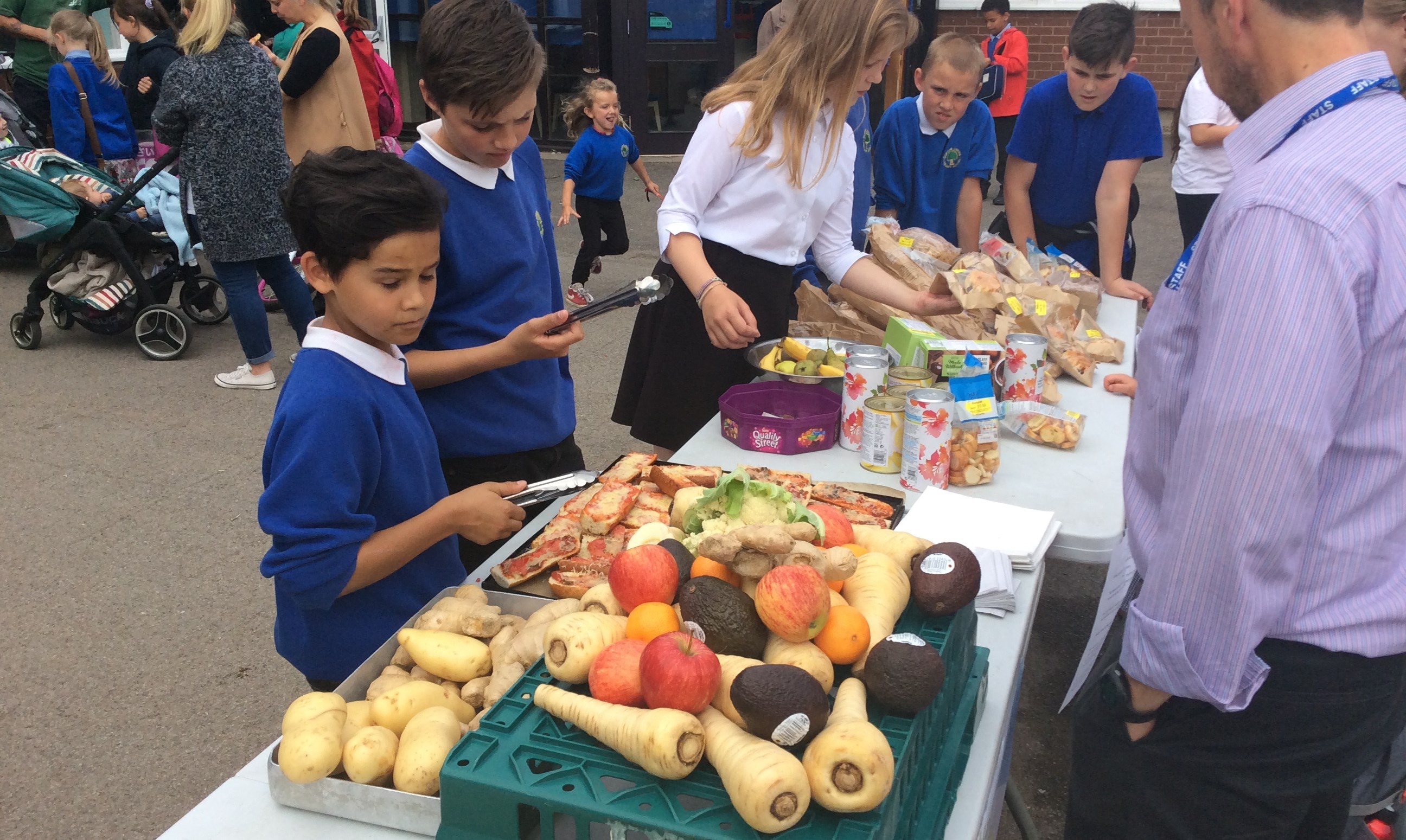
In the playground outside Clifton Green Primary School, children and grown-ups alike are enjoying some freshly-made onion soup. At this time of year, soup is a regular offering, as are French bread pizzas, baskets of fruits or vegetables along with yesterday's bread - which can be turned into garlic bread, or just taken home to toast.
These are all typical bites at the York school’s pop-up Snack Shack run by children and parents at the school. Kids and grown-ups can pick up a healthy snack to take on their way home, giving a Pay As You Feel donation – whether that’s parents popping some pennies in pot, or perhaps spending an hour reading with the children in school or helping with the chickens. The idea is that money shouldn’t be a barrier, and any money that is raised helps subsidise the cost of school trips.
Not only do the kids run the stall, but they also make and design the food, giving students a glimpse into the exciting world of cooking and retail, and providing some handy life skills.
The Snack Shack feeds around 100-150 pupils per week, and best of all, from food that would otherwise be wasted. Food that has reached its 'display until' date is collected and transformed into great snacks to eat after school, giving children a chance to learn how to make food using ingredients otherwise destined for the bin.
Using the Neighbourly platform, which has now distributed over one million meals to around 620 charities and groups like Clifton Green, the primary school is connected to retailers with surplus food. The school can set up alerts to find out what’s available and arrange collection.
The project wouldn’t be sustainable – or as successful – as it is without this surplus food, says food development manager at Clifton Green, Lisa Green. What began as an enterprise initiative for the school’s Year 6 children has now become a valued project. “People have come to expect to see The Snack Shack set up. Many children have tasted food and ingredients that are new to them. It also encourages a sense or spirit of recipe sharing and a shared love of food.”
The school receives food twice a week, depending on availability. Parents and children in years five and six run the Snack Shack, bringing the school together and creating a sense of community, as well as cutting costs at home. It has had great feedback from parents, who say the children value the responsibility and get a sense of working life, says Green.
By running the Snack Shack, the school’s children and grown-ups have better access to a variety of fresh food - some of which they might not have tasted before. According to some reports, most children don’t get their recommended five a day. “We hope that it intercepts some of the less healthy foods that we sometimes eat when we are hungry.”
And it’s just as good for the parents an teachers, too. Parent Adeola who helps run Snack Shack said, “being involved with the Snack Shack has helped me to meet a lot of new people; it helps to break down barriers. Food brings everyone's love out.”
About Neighbourly
Neighbourly matches charity and community projects with people and companies that can donate time, money or surplus food.
Currently, the Neighbourly Food scheme sees between 90,000 and 100,000 meals donated per month.
Charities: join us! You can get your free project page started here
Businesses: email us about redistributing your surplus on hello@neighbourly.com